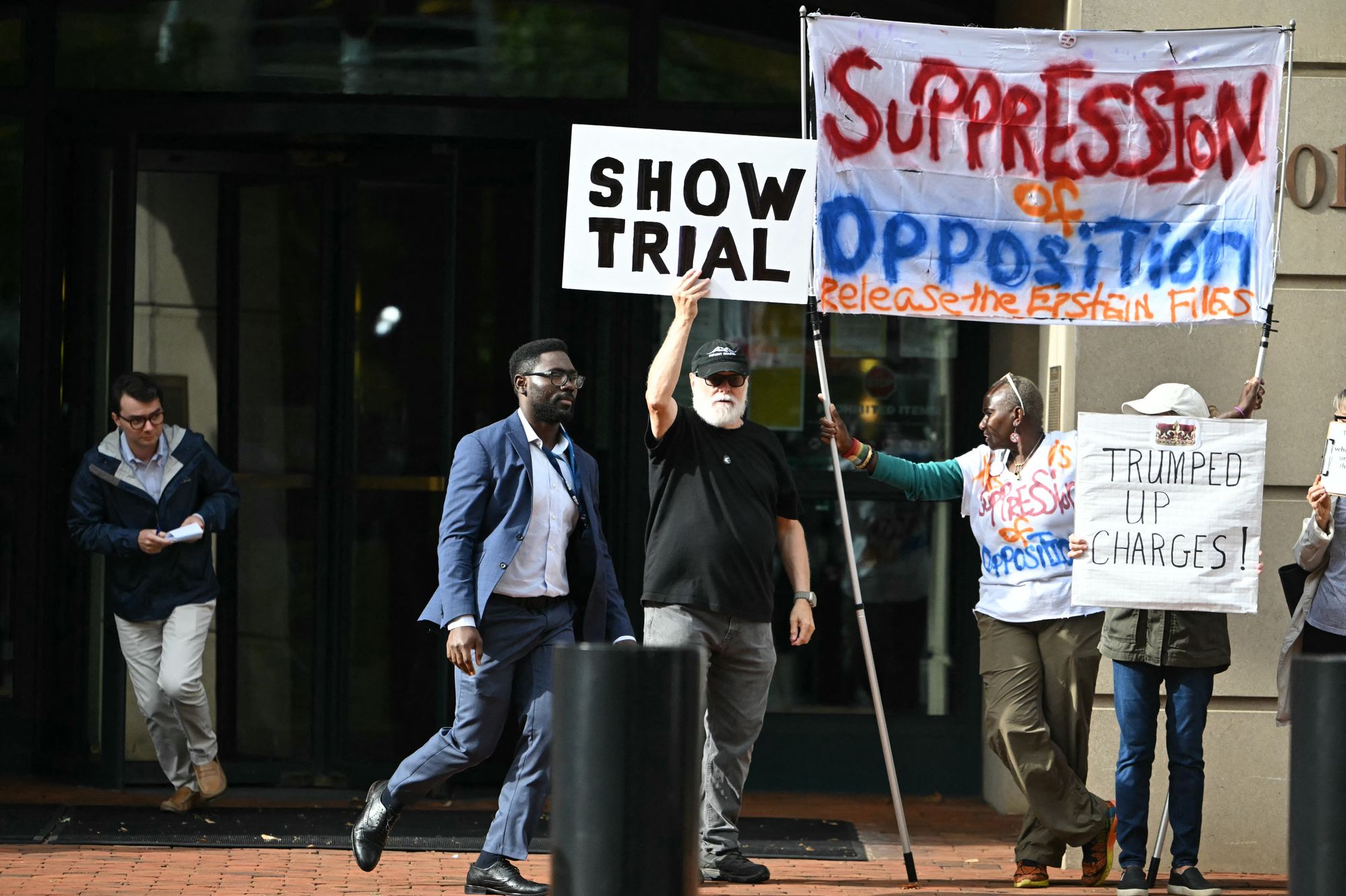Former FBI director James Comey has pleaded not guilty to lying to Congress in a case President Donald Trump demanded the Department of Justice seek, regardless of evidence, against his longtime foe.
Comey made his first appearance in federal court in Alexandria, Virginia, on Wednesday to face charges stemming from his testimony to the Senate Judiciary Committee in 2020, when he denied authorizing leaks to reporters.
“I’m not afraid, and I hope you’re not, either,” Comey said in a video message responding to his indictment last week. “My heart is broken for the Department of Justice, but I have great confidence in the federal judicial system.”
Comey — whose firing by Trump during his first administration led to the appointment of special counsel Robert Mueller — has long been a target of the president and his allies following his investigation to determine whether Trump’s associates coordinated with Russian figures to interfere with the 2016 presidential election.
That investigation consumed the president’s first term and cast a shadow over his 2024 campaign and current administration, fueling a campaign of retribution he promised against his perceived political enemies. The case against Comey marks the most significant prosecution of Trump’s perceived political enemies yet, after he explicitly directed his Justice Department to investigate Comey and others.
Trump, his Attorney General Pam Bondi and her radically reshaped Justice Department — now filled with loyalists and attorneys to dominate agencies that the president claims have been weaponized against him — are also targeting prominent Democratic officials, progressive fundraising groups and an array of ideological opponents the administration alleges are tied to acts of terrorism.
Comey, a registered Republican who had worked for the Justice Department since the 1980s, is the first former senior government official facing criminal charges under Trump’s retribution campaign, which the president celebrated on his Truth Social by labeling him “one of the worst human beings this country has ever been exposed to.”
Prosecutors investigating his appearance before the Senate Judiciary Committee in 2020 have repeatedly rejected bringing criminal charges against him, citing insufficient evidence that he gave false testimony.
Comey was ultimately charged after Trump successfully pressured the acting head of the U.S. Attorney’s Office for the Eastern District of Virginia to resign. He then tapped yet another one of his former personal attorneys to the role, despite her lack of prosecutorial experience.
In a highly unusual move, Lindsey Halligan presented the case to a grand jury herself, and the grand jury voted to indict him last month.
Halligan initially sought three charges against Comey, but 12 or more jurors did not find probable cause to indict him. If convicted on the two remaining charges, he faces up to five years in prison.

To find him guilty of making false statements to Congress, a jury would have to agree that they believe he knowingly and willfully deceived senators about an issue material to a question at the center of that 2020 Senate hearing.
The hearing focused on the FBI’s role in the Trump-Russia investigation, though the allegation that Comey made false statements to the committee involves a separate investigation into Hillary Clinton’s foundation in 2016.
Comey is accused of lying about whether he authorized someone at the FBI to be a source for The Wall Street Journal, which published a story about a probe into Trump’s former Democratic opponent that was published in October 2016, shortly before the presidential election, which Trump won.
In the hearing, Republican Senator Ted Cruz had reminded Comey of previous testimony from 2017: “On May 3, 2017, in this committee, Chairman [Chuck] Grassley asked you point blank, ‘have you ever been an anonymous source in news reports about matters relating to the Trump investigation or the Clinton investigation?’ You responded under oath, ‘Never.’
“He then asked you, ‘Have you ever authorized someone else at the FBI to be an anonymous source in news reports about the Trump investigation or the Clinton administration?’” Cruz continued. “You responded again under oath, ‘No.’”
In 2018, an inspector general report determined that, in 2016, then-deputy FBI director Andrew McCabe authorized FBI personnel to speak toThe Wall Street Journal about the Clinton investigation. McCabe allegedly told Comey that he had authorized the leak and that Comey “accepted it,” according to the report.
McCabe was fired from the FBI the following month, just days before his scheduled retirement.
This is a developing story



